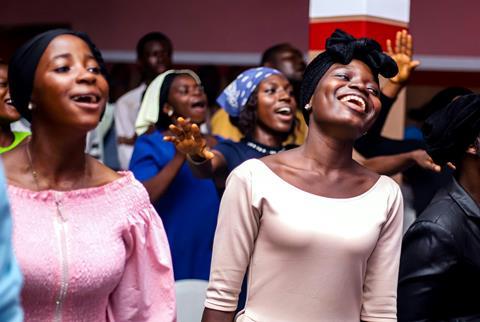Ayoola Bandele reflects on the overlooked faith and courage of Black women like Phillis Wheatley and Mary Prince, showing how their steadfast belief continues to shine light and inspire today.

When Black History Month comes around, we tend to celebrate the big names, the campaigners, preachers, and pioneers whose courage changed nations. Yet as I began digging into faith stories from the past, I realised how many women’s names have slipped quietly through the cracks. Women who believed, persevered, and prayed when the world refused to see their worth. Two stories especially stayed with me: Phillis Wheatley and Mary Prince. Born roughly a generation apart, their faith felt connected as if one woman’s pen and another’s pain were both carrying the same song of hope.
Born in 1753, Phillis Wheatley was around seven when she was taken from West Africa and sold into slavery in Boston.
Born in 1753, Phillis Wheatley was around seven when she was taken from West Africa and sold into slavery in Boston. It’s hard to imagine what a child that age must have felt, arriving in a strange land. And yet, somehow, she learned to read, fell in love with poetry, and found God along the way. Her poems spoke of salvation and dignity in a world that denied both. One line still stops me in my tracks: “Remember, Christians, Negroes, black as Cain, May be refined, and join the angelic train.”
Black History Month: I understand the criticism of championing ‘The Black Church’ but I also think it’s important
In the 1700s, that was radical. Many publishers in America refused to believe a young Black woman could write so eloquently. But London opened its doors. With the help of ministers and abolitionists, her book Poems on Various Subjects, Religious and Moral was printed here in 1773.
I often think about how God took her words across an ocean when the world tried to silence her voice.
Then there’s Mary Prince. Born in 1788 and enslaved in Bermuda, she endured years of cruelty before reaching Britain, where she wrote The History of Mary Prince (1831) the first account of a Black woman’s life ever published in the UK. Reading her testimony, I could almost hear her prayers between the lines. She wrote of punishment and fear, but also of grace. “All slaves want to be free, to be free is very sweet,” she said. Those words carry both ache and awe.
Black History Month: Watching the inclusive work of Sharmadean Reid MBE reminds me of the gospel
Mary’s faith didn’t erase her suffering, but it reframed it.
Mary’s faith didn’t erase her suffering, but it reframed it. Her story stirred the conscience of a nation and helped move hearts toward abolition. I can’t help wondering if she knew, even dimly, how far her witness would travel. What links Phillis and Mary for me is the kind of faith that refuses to disappear. It’s quiet but unbreakable. It reminds me that influence isn’t always loud or public; sometimes it’s found in the steady courage of women who keep believing.
Black History Month: Presenter and author Cynthia Garrett helped me believe that, with God, I can overcome anything
In a world that measures worth by visibility, their stories whisper something different. That you don’t need a platform to make an impact. That faith lived faithfully, through words, work, or witness, can still shape history. As a woman of faith today, I find that both challenging and comforting. There are days when the world feels noisy and success seems to belong to the boldest voices. But Phillis and Mary remind me that God still uses the unseen and the underestimated.
So this Black History Month, I’m choosing to remember them, not as distant heroines, but as sisters in faith whose courage calls to ours. Their lives tell me that true freedom begins in the soul, and that when we speak light into dark places, heaven still listens.



































No comments yet